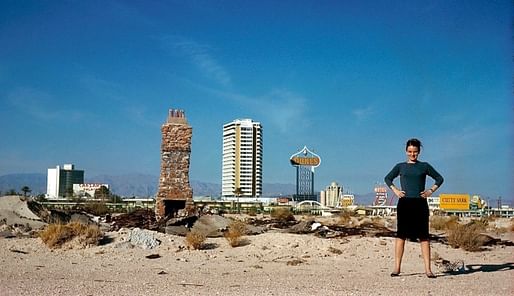

What struck me when I went back to reread the book is how deliberately it works to collapse the distance, and therefore the distinction, between enthusiasm and skepticism, and ultimately between documentation and critique. Above all, “Learning from Las Vegas” argues for a curious and open-minded anti-utopianism, for understanding cities as they are rather than how planners wish they might be—and then using that knowledge, systematically and patiently won, as the basis for new architecture. — The New Yorker
Yale’s new visiting critic Christopher Hawthorne considers the lasting inspirational qualities and history of Steven Izenour, Denise Scott Brown, and Robert Venturi's seminal 1972 text, whose origins can be traced to a studio the young newlyweds taught in New Haven in the fall of 1968. Hawthrone places it alongside Reynar Banham’s Los Angeles: The Architecture of Four Ecologies — published the year before — in an antiquated canon but says its impartial tone should be emulated by a new generation of high-minded designers hoping to dismantle or improve the pernicious social and environmental ramparts of our young century.
“'To tear down Paris and begin again' is not so far, in spirit, from the current mood, even if the political goals of many young architects are quite different from those of the right-leaning Le Corbusier,” he writes. “An approach that begins with close observation and ends with highly literate if occasionally self-satisfied commentary on that observation — the Scott Brown and Venturi method — seems ill-equipped, these days, to change the world in all the depressingly vast ways that it needs changing. What good is town watching when the town is on fire?”
(Of note: Yale will be hosting a symposium on Scott Brown’s career hosted by Frida Grahn and Deborah Berke on Wednesday, February 8th, at 1:30 PM. More information about attending can be found here.)
No Comments
Block this user
Are you sure you want to block this user and hide all related comments throughout the site?
Archinect
This is your first comment on Archinect. Your comment will be visible once approved.